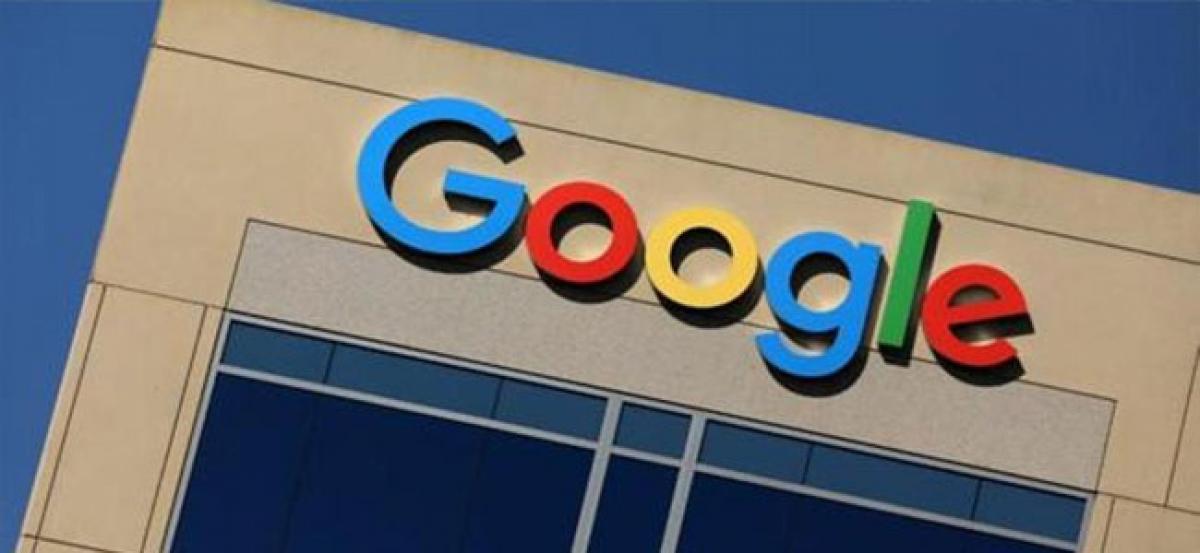Live
- Record additions in non-fossil fuel energy in India
- Indian teens’ grand arrival on world stage
- Chanchalguda Jail Officials Say They Haven't Received Bail Papers Yet, Allu Arjun May Stay in Jail Tonight
- BJP leaders present evidence of illegal voters in Delhi, urge EC for swift action
- Exams will not be cancelled: BPSC chairman
- Nagesh Trophy: Karnataka, T.N win in Group A; Bihar, Rajasthan triumph in Group B
- YS Jagan condemns the arrest of Allu Arjun
- Economic and digital corridors to maritime connectivity, India and Italy building vision for future, says Italian Ambassador
- SMAT 2024: Patidar's heroics guide Madhya Pradesh to final after 13 years
- CCPA issues notices to 17 entities for violating direct selling rules
Just In

Alphabet Inc’s Google unveiled on Wednesday its first Gmail redesign since 2013, capping what the company says was an expensive overhaul two years in the making to adopt security and offline functionality and better resemble Microsoft Outlook.
With Gmail, Google said it restructured email storage databases, unified three duelling systems for syncing messages across devices and upgraded computers underpinning the service.
Alphabet Inc’s Google unveiled on Wednesday its first Gmail redesign since 2013, capping what the company says was an expensive overhaul two years in the making to adopt security and offline functionality and better resemble Microsoft Outlook.
It is Google’s most extensive update to software in its G Suite workplace bundle since accelerating efforts to steal business from Microsoft Corp’s dominant Office workplace software suite. Previously, G Suite added instant-messaging and spreadsheet features.
With Gmail, Google said it restructured email storage databases, unified three dueling systems for syncing messages across devices and upgraded computers underpinning the service. That shift to Google’s self-developed Tensor processing chips enables smart-assistant features such as “suggested replies” to messages and “nudges” to respond to forgotten emails.
“This is an entire rewrite of our flagship, most-used product,” said Jacob Bank, product manager lead for Gmail, which 1.4 billion people use each month.
Unreliable offline access to email has long discouraged would-be customers, while recent high-profile corporate data breaches have increased their desire to lock down email. Analysts estimate G Suite generated about $2 billion in revenue last year, 10 times behind Office.
Google declined to specify costs associated with the redesign. But parent Alphabet reported Monday that first-quarter capital expenditures nearly tripled year-over-year to $7.3 billion.
Chief Financial Officer Ruth Porat told analysts that half of the spending resulted from hardware purchases to support expanding use of machine learning, which describes automated programs that can, among other things, identify spam and predict which emails users would find most important.
Security and smarts
Google’s Bank said the overhaul was required primarily to provide offline access to up to 90 days of emails for users who turn on the feature.
The changes also fulfill another top demand of business executives - message expiration.
Users who enable a “confidential” option when sending an email can time-limit its access to recipients and also require they enter a one-time passcode sent to their phones to read it.
The new setting does not override corporate email retention policies or present new obstacles to law enforcement.
“Nudges” and a higher bar for new-mail notifications round out Google’s revised sales pitch. The company estimated that nudges will lead 8 percent of business users each week to remember to follow-up on something important.
Cosmetic changes bring Gmail’s website in line with Office by placing Google’s calendar, tasks and note-taking services within the same page as emails.
Bank said testers have advanced from “neutral to positive to very positive” on the new look.

© 2024 Hyderabad Media House Limited/The Hans India. All rights reserved. Powered by hocalwire.com







